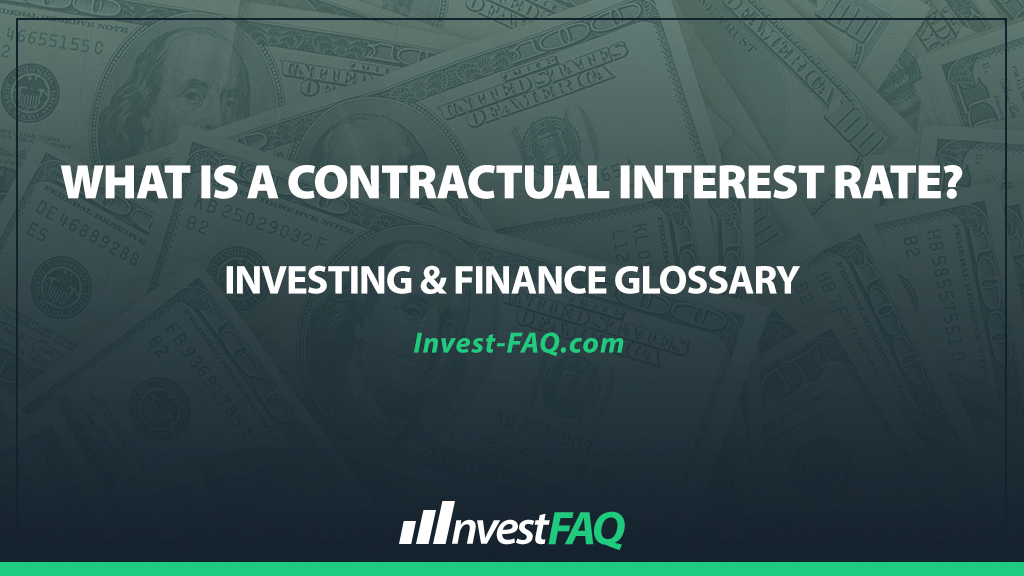
Contractual Interest Rate
Contents
A contractual interest rate is the rate of interest agreed upon by the parties involved in a financial contract, typically a loan or credit agreement. This rate determines the amount of interest a borrower must pay over the life of the loan, in addition to repaying the principal amount borrowed.
In business, the contractual interest rate is a critical component of financial management, affecting both the cost of borrowing and the return on investment for lenders.
Businesses often negotiate interest rates when obtaining loans for operations, expansion, or capital projects, with the rate significantly impacting the overall cost of financing.
Similarly, companies offering credit to customers or investing surplus cash in interest-bearing accounts will encounter contractual interest rates determining their returns.
Example of a Contractual Interest Rate
Imagine a manufacturing company, BuildCo, that takes out a $500,000 loan for new equipment with a 5-year term and a contractual interest rate of 6% annually. Over the life of the loan, BuildCo agrees to make annual interest payments in addition to repaying the principal.
In this scenario, BuildCo would incur $30,000 in interest expenses annually ($500,000 x 6%), which would be recorded in the income statement under interest expense.
This expense reduces the company’s net income, affecting profitability.
However, the loan enables BuildCo to purchase equipment that increases production capacity and potentially revenue, illustrating how businesses balance the cost of interest with the benefits of financing. On the balance sheet, the loan’s principal amount is recorded as a liability, and the interest expense impacts retained earnings through the income statement.
Types in Business Scenarios
Fixed Interest Rates: The rate remains constant throughout the life of the loan, providing predictable payment amounts.
Variable Interest Rates: The rate can change based on market conditions, offering lower rates initially but with the risk of increase.
Compound Interest Rates: Interest is calculated on the initial principal and also on the accumulated interest of previous periods.
Simple Interest Rates: Interest is calculated only on the principal amount, typically for shorter-term loans or specific financial products.
Significance for Investing & Finance
Understanding contractual interest rates is crucial in accounting for accurately recording liabilities, expenses, and revenues associated with financial transactions. It affects cash flow forecasting, budgeting, and financial statement accuracy.
Properly accounting for interest expenses and income ensures compliance with accounting standards, provides insights into financial health, and assists in effective financial planning and analysis.
Summary
The contractual interest rate is a foundational element of financial contracts, influencing the cost of borrowing and investment returns. It has profound implications for business strategy, financial planning, and accounting practices.
By carefully negotiating and managing contractual interest rates, businesses can optimize their financial operations, enhance profitability, and achieve strategic goals. Accurate accounting for these rates ensures transparency, compliance, and informed decision-making.
FAQ
How does the contractual interest rate affect the total cost of a loan?
The contractual interest rate determines the amount of interest a borrower pays over the life of a loan, directly impacting the total repayment amount; a higher interest rate increases the overall cost of borrowing.
Can a contractual interest rate change over the duration of a loan agreement?
For loans with a variable or adjustable interest rate, the contractual interest rate can change based on market conditions or agreed-upon index rates, affecting periodic payment amounts and the total interest paid.
What factors influence the determination of a contractual interest rate for a loan?
The contractual interest rate is influenced by several factors including the borrower’s creditworthiness, the loan amount and term, market interest rates, and the lending institution’s policies.
Is it possible to negotiate the contractual interest rate on a business loan?
Yes, businesses can often negotiate the contractual interest rate on a loan based on their credit history, relationship with the lender, and economic conditions, potentially securing more favorable terms.
